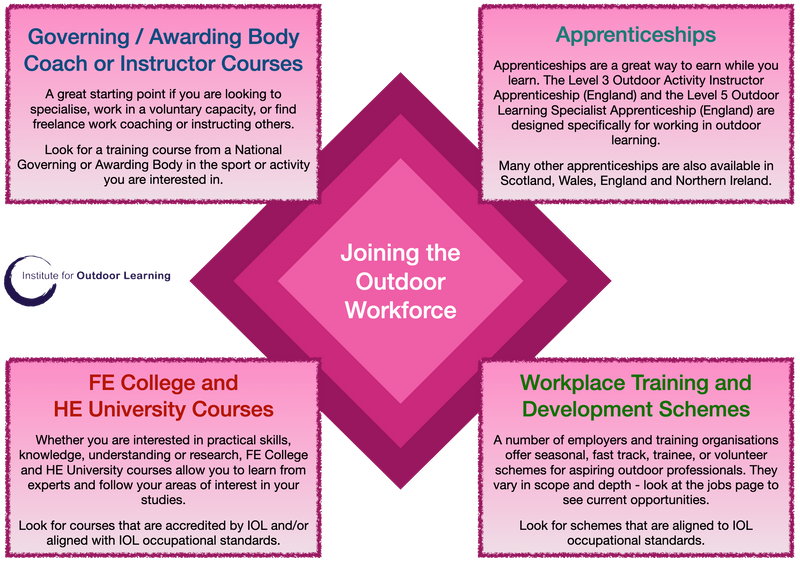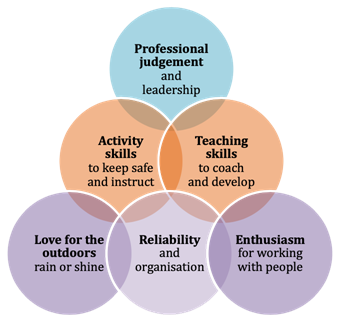
Training / Education Guide
Where to start?
To work in outdoor learning you will need to start with a love for the outdoors come rain or shine, a sense of reliability and organisation, and enthusiasm for working with people. Read through our Working in Outdoor Learning guide or talk with an IOL Organisational Member or IOL Accredited Member in your area to find out more.
You will need activity skills to inspire and keep participants safe, and teaching skills to coach and develop people through the activities you lead. Whatever your role, employers will need you to be able to fulfil your “duty of care” and be up-to-date with first aid, safeguarding, data protection and “competent” before you lead an activity or programme. Being able to drive a minibus may also be required.
There are four main training / education options:

Ready for the next step in your career?
Look at The Outdoor Professional guide and work through the IOL 7 Steps to CPD with an APIOL or LPIOL Coach to help you to work out where you are now, where you want to go next, and how you can get there.
The following organisations manage recognised and widely accepted training courses and awards relevant to working in outdoor learning.
Governing and Awarding Bodies for Outdoor Sports and Activities
The following organisations manage recognised and widely accepted training courses and awards relevant to working in outdoor learning.
Environmental Education and Field Studies
Other Recognised Bodies
Accompanying Skills for Outdoor Learning Professionals
Do I need to do a training course to be competent?
The Health and Safety Executive (HSE) define competence as “The combination of training, skills, experience and knowledge that a person has and their ability to apply them to perform a task safely”. Read More...
Your level of competence only needs to be proportionate to your job and place of work.
Employers need to be assured you are competent, but you may not necessarily need to complete a specific training course if you already have relevant experience. The Recognised ways to demonstrate competence are:
- Externally awarded qualifications with an appropriate syllabus; or
- In–house training leading to a statement of competence; or
- Assessment of your experience leading to a statement of competence.
Talk with your employer (or prospective employer) about how your training, skills, experience and knowledge fits their preferred ways to recognise competence in their staff team.









